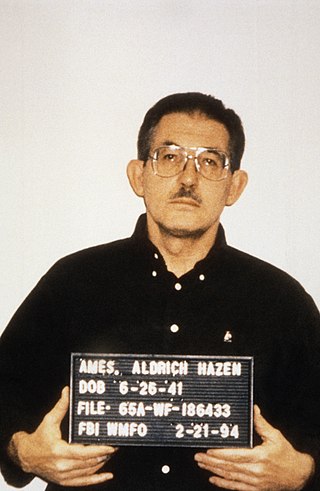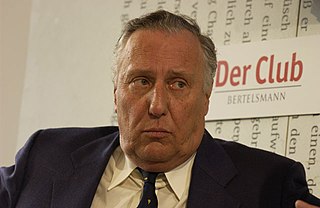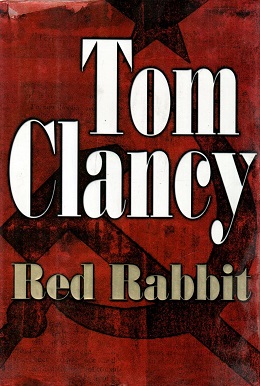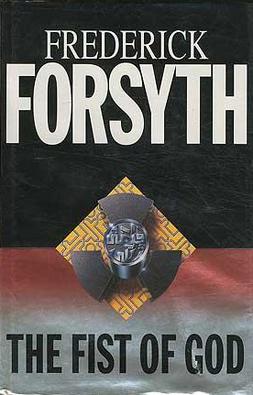
Harold Adrian Russell "Kim" Philby was a British intelligence officer and a spy for the Soviet Union. In 1963, he was revealed to be a member of the Cambridge Five, a spy ring that had divulged British secrets to the Soviets during World War II and in the early stages of the Cold War. Of the five, Philby is believed to have been the most successful in providing secret information to the Soviets.

Spy fiction is a genre of literature involving espionage as an important context or plot device. It emerged in the early twentieth century, inspired by rivalries and intrigues between the major powers, and the establishment of modern intelligence agencies. It was given new impetus by the development of fascism and communism in the lead-up to World War II, continued to develop during the Cold War, and received a fresh impetus from the emergence of rogue states, international criminal organizations, global terrorist networks, maritime piracy and technological sabotage and espionage as potent threats to Western societies. As a genre, spy fiction is thematically related to the novel of adventure, the thriller and the politico-military thriller.

Aldrich Hazen Ames is an American former CIA counterintelligence officer who was convicted of espionage on behalf of the Soviet Union and Russia in 1994. He is serving a life sentence, without the possibility of parole, in the Federal Correctional Institution in Terre Haute, Indiana. Ames was known to have compromised more highly classified CIA assets than any other officer until Robert Hanssen, who was arrested seven years later in 2001.

Counterintelligence (counter-intelligence) or counterespionage (counter-espionage) is any activity aimed at protecting an agency's intelligence program from an opposition's intelligence service. It includes gathering information and conducting activities to prevent espionage, sabotage, assassinations or other intelligence activities conducted by, for, or on behalf of foreign powers, organizations or persons.

Frederick McCarthy Forsyth is an English novelist and journalist. He is best known for thrillers such as The Day of the Jackal, The Odessa File, The Fourth Protocol, The Dogs of War, The Devil's Alternative, The Fist of God, Icon, The Veteran, Avenger, The Afghan, The Cobra and The Kill List. Forsyth's works frequently appear on best-sellers lists and more than a dozen of his titles have been adapted to film. By 2006, he had sold more than 70 million books in more than 30 languages.

Red Rabbit is a spy thriller novel, written by Tom Clancy and released on August 5, 2002. The plot occurs a few months after the events of Patriot Games (1987), and incorporates the 1981 assassination attempt on Pope John Paul II. Main character Jack Ryan, now an analyst for the Central Intelligence Agency, takes part in the extraction of a Soviet defector who knows of a KGB plot to kill the pontiff. The book debuted at number one on The New York Times Best Seller list.

Operation Gold was a joint operation conducted by the American Central Intelligence Agency (CIA) and the British MI6 Secret Intelligence Service (SIS) in the 1950s to tap into landline communication of the Soviet Army headquarters in Berlin using a tunnel into the Soviet-occupied zone. This was a much more complex variation of the earlier Operation Silver project in Vienna.

Tinker Tailor Soldier Spy is a 1974 spy novel by the author and former spy John le Carré. It follows the endeavours of the taciturn, ageing spymaster George Smiley to uncover a Soviet mole in the British Secret Intelligence Service. The novel has received critical acclaim for its complex social commentary—and, at the time, relevance, following the defection of Kim Philby. It was followed by The Honourable Schoolboy in 1977 and Smiley's People in 1979. The three novels together make up the "Karla Trilogy", named after Smiley's long-time nemesis Karla, the head of Soviet foreign intelligence and the trilogy's overarching antagonist.

Oleg Vladimirovich Penkovsky, codenamed Hero and Yoga was a Soviet military intelligence (GRU) colonel during the late 1950s and early 1960s. Penkovsky informed the United States and the United Kingdom about Soviet military secrets, including the appearance and footprint of Soviet intermediate-range ballistic missile installations and the weakness of the Soviet intercontinental ballistic missile (ICBM) program. This information was decisive in allowing the US to recognize that the Soviets were placing missiles in Cuba before most of them were operational. It also gave US President John F. Kennedy, during the Cuban Missile Crisis that followed, valuable information about Soviet weakness that allowed him to face down Soviet leader Nikita Khrushchev and resolve the crisis without a nuclear war.

The Honourable Schoolboy (1977) is a spy novel by John le Carré. George Smiley must reconstruct an intelligence service in order to run a successful offensive espionage operation to save the service from being dismantled by the government. In 1977, the book won the Gold Dagger award for the best crime novel of the year and the James Tait Black Memorial Prize. The Honourable Schoolboy is the second novel in the omnibus titled either Smiley Versus Karla or The Quest for Karla.

Reinhard Gehlen was a German career intelligence officer who served the Weimar Republic, Nazi Germany, the U.S. intelligence community, and the NATO-affiliated Federal Republic of Germany during the Cold War.

The Fist of God is a 1994 suspense novel by British writer Frederick Forsyth, with a fictitious retelling of the Iraqi Project Babylon and the resulting "supergun".
Adolf Georgiyevich Tolkachev was a Soviet electronics engineer. He provided vital documents to the United States Central Intelligence Agency (CIA) between 1979 and 1985. Working at the Soviet radar design bureau Phazotron as one of the chief designers, Adolf Tolkachev gave the CIA complete detailed information about projects such as the R-23, R-24, R-33, R-27, and R-60, S-300 missile systems; fighter-interceptor aircraft radars used on the MiG-29, MiG-31, and Su-27; and other avionics. KGB Police executed him in Moscow for being a spy in 1986.

Icon is a thriller novel by British author Frederick Forsyth. Its plot centres on the politics of the Russian Federation in 1999, with an extremist party close to seizing power. Published by Bantam Press in September 1997, (ISBN 978-0-553-57460-9), Icon became a New York Times Bestseller and was adapted into a television film.

Dmitri Fyodorovich Polyakov was a Major General in the Soviet GRU during the Cold War. According to former high-level KGB officer Sergey Kondrashev, Polyakov acted as a KGB disinformation agent at the FBI's New York City field office when he was posted at United Nations headquarters in 1962. Kondrashev's post-Cold War friend, former high-level CIA counterintelligence officer Tennent H. Bagley, says Polyakov "flipped" and started spying for the CIA when he was reposted to Rangoon, Moscow, and New Delhi. Polyakov was suddenly recalled to Moscow in 1980, arrested, tried, and finally executed in 1988.
Clandestine human intelligence is intelligence collected from human sources using clandestine espionage methods. These sources consist of people working in a variety of roles within the intelligence community. Examples include the quintessential spy, who collects intelligence; couriers and related personnel, who handle an intelligence organization's (ideally) secure communications; and support personnel, such as access agents, who may arrange the contact between the potential spy and the case officer who recruits them. The recruiter and supervising agent may not necessarily be the same individual. Large espionage networks may be composed of multiple levels of spies, support personnel, and supervisors. Espionage networks are typically organized as a cell system, in which each clandestine operator knows only the people in his own cell, perhaps the external case officer, and an emergency method to contact higher levels if the case officer or cell leader is captured, but has no knowledge of people in other cells. This cellular organization is a form of compartmentalisation, which is an important tactic for controlling access to information, used in order to diminish the risk of discovery of the network or the release of sensitive information.
Clandestine HUMINT asset recruiting refers to the recruitment of human agents, commonly known as spies, who work for a foreign government, or within a host country's government or other target of intelligence interest for the gathering of human intelligence. The work of detecting and "doubling" spies who betray their oaths to work on behalf of a foreign intelligence agency is an important part of counterintelligence.
There is a long history of close cooperation between the United States and the United Kingdom intelligence services; see Clandestine HUMINT and Covert Action for World War II and subsequent relationships. There are permanent liaison officers of each country in major intelligence agencies of the other, such as the Central Intelligence Agency (CIA) and the Secret Intelligence Service ("MI6"), FBI and the Security Service (MI5), and National Security Agency (NSA) and Government Communications Headquarters (GCHQ). From 1943 to 2017, the Open Source Enterprise, a division of the CIA, was run out of Caversham Park in Reading, Berkshire. American officials worked closely with their British counterparts to monitor foreign TV and radio broadcasts, as well as online information.

The Secret Intelligence Service (SIS), commonly known as MI6, is the foreign intelligence service of the United Kingdom, tasked mainly with the covert overseas collection and analysis of human intelligence on foreign nationals in support of its Five Eyes partners. SIS is one of the British intelligence agencies and the Chief of the Secret Intelligence Service ("C") is directly accountable to the Foreign Secretary.
Frederick Forsyth Presents is a series of British made-for-television films made by FremantleMedia for London Weekend Television on ITV, first broadcast between 2 December 1989 to 8 December 1990.














